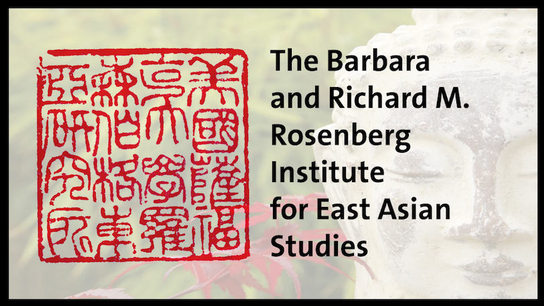
Rosenberg Institute Scholars
The following papers represent the research activities of the Rosenberg Institute's Research Fellow Program which contributes unique scholarship in the field of Asian Studies.
-

Public Medicine in Wartime China: Biomedicine, State Medicine, and the Rise of China’s National Medical Colleges, 1931-1945
John R. Watt Ph.D.
Public Medicine in Wartime China is the first in a series of Occasional Papers issued by the Rosenberg Institute. It is based on a longer study of the subject by Dr. John R. Watt and follows a presentation he made at Suffolk University in April 2010, co-sponsored by the Taiwan Economic and Cultural Office in Boston. Dr. Watt’s paper was published in February 2012.
-

"U.S.-China Competition in the post-Covid-19 World: Globalization at a Cross-roads"
Min Ye
Strategic competition between the United States and China had been deteriorating much earlier than the Covid-19 outbreak in 2020.1 However, in the past, despite intense political rivalry and geostrategic competition, policy communities and societies in the two countries have maintained active and robust engagement and dialogues. Much of the dialogues focused on complaints against each other’s behavior and intentions. Nonetheless, such dialogues kept information and concerns flowing between the rival powers. Concerned third-party actors often play stabilizing roles by communicating potential fragilities between Washington and Beijing. In short, pre-Covid-19, strategic rivalry between China and the U.S. was intense, but it was moderated by policy actors and societal openness. Covid-19 has severely challenged the geopolitical environment surrounding China and the United States. Both countries experienced the worst public health and economic crisis in a long time. However, termination in international travels and policy exchanges between China and the U.S. have further intensified the bilateral rivalry and made global cooperation hopelessly difficult to attain, at a time when such cooperation was most needed. In the United States, moderate groups whose work depends on bilateral travel and exchange have been marginalized, and common narratives on China are taken over by more extreme views. On the one extreme, the views emphasize China’s triumphalism — seeking to lead globalization toward Chinese interest and values. On the other extreme, the views stress China’s potential implosion — the Communist rule on the verge of internal explosion due to social-economic challenges from the pandemic. In the context of extreme views, real voices and the actions of China’s policy communities during its Covid-19 cycle have been understudied and discounted, with damaging effects on the U.S. response to the virus, to economic recession, and, ultimately, to future trends in globalization.
-

Deference, Displacement, and Due Diligence in AIIB and World Bank Lending in India: The Amaravati Capital City and Mumbai Urban Transport Projects
Jason A. Kirk
The Asian Infrastructure Investment Bank (AIIB) has invested almost one-third of its entire pan-Asian portfolio in India, which has quietly become the Chinese-led bank’s top borrower despite rising China-India tensions. Over the first half-decade of the AIIB, most of its projects were co-financed with other multilaterals, led by the World Bank, and applied their environmental and social policies, accountability mechanisms, and grievance processes. This empirical research paper traces the development of two projects in India involving AIIB and the World Bank: the ill-fated Amaravati Capital City Project in Andhra Pradesh, a cancelled co-financed project, and the ongoing Mumbai Urban Transport Project, Phase III, originally intended for co-financing but is an AIIB standalone after India’s negotiations with the World Bank met at an impasse. While the cases exhibit quite different examples of AIIB and World Bank’s partnership in (and with) India, both raise similar questions about AIIB’s accountability for environmental and social impacts of its projects—particularly where land acquisition is concerned.
-

Repressive-Responsive Parameters of Autocracies in Asia: Vietnam and China Compared
Nhu Truong
Moving beyond crude dichotomies of regime types, this article examines how state strategies of repression and responsiveness vary across autocracies in Asia. Specifically, Vietnam and China show significant variance on the reactive-institutionalized spectrum when it comes to land expropriation. Whereas Vietnam has systematically strengthened mechanisms against arbitrary land seizures, China has reactively opted for sketchy and ad-hoc reforms to curtail land conflicts. This article discloses the repressive-responsive parameters of autocracies in Asia through an original framework that allows for sharper analytical differentiation of how autocracies differ.
-

Threatening National Security or Bridging the Digital Divide? A Case Study of Huawei’s Expansion in Brazil
Julie Jin Zeng
China’s digital footprint has been expanding rapidly in Latin America in the last two decades. Neither the U.S.-China tech war nor the U.S.-led global campaign aimed at Chinese tech firms seemed to be able to reverse the trend. Much of the policy discussion in the western media surrounding China’s digital expansion focuses on the supply side, emphasizing the potential risks of adopting Chinese technologies. Yet there remains scant research on the demand side— namely, how policymakers in developing countries perceive Chinese tech firms and how they maneuver amid the intensifying rivalry between the U.S. and China. Why did Chinese tech firms become key telecommunication equipment providers for Latin America despite geopolitical headwinds? To shed light on the issue, my research examines local stakeholders’ perceptions of Chinese tech firms and their choices between development and national security. Employing a case study of Huawei’s expansion in Brazil, I argue that the lack of political consensus on banning Huawei, the prohibitive costs of replacing Huawei, Brazil’s priority of development over security concerns, and China’s vaccine diplomacy enabled the Chinese tech giant to gain a firm foothold in Brazil. Instead of perceiving Chinese technologies as a security threat, major Brazilian regulators and internet service providers consider Huawei as an opportunity for them to bridge the digital divide.
